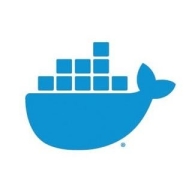

Docker and AWS App Runner are competitors in the arena of containerized application deployment. Docker's development-centric approach gives it an edge for developers focusing on control, while AWS App Runner may be superior for organizations prioritizing ease of use and integration with AWS services.
Features: Docker offers robust containerization with high flexibility, orchestration capabilities using Docker Swarm and Kubernetes, and an extensive tool ecosystem. AWS App Runner provides automatic scaling, seamless integration with AWS services, and a fully managed environment.
Ease of Deployment and Customer Service: Docker's deployment model allows granular control, appealing to developers with extensive community support and documentation. AWS App Runner simplifies deployment with a managed service, backed by AWS's comprehensive customer service and integration.
Pricing and ROI: Docker's pricing can vary due to user-managed infrastructure, affecting initial setup costs but offering scalability benefits. AWS App Runner uses a straightforward model including infrastructure costs, potentially offering faster ROI for businesses using AWS services.
| Product | Market Share (%) |
|---|---|
| Docker | 29.6% |
| AWS App Runner | 3.9% |
| Other | 66.5% |
| Company Size | Count |
|---|---|
| Small Business | 22 |
| Midsize Enterprise | 4 |
| Large Enterprise | 35 |
AWS App Runner is primarily used for deploying and scaling web applications and APIs, known for its seamless integration with GitHub, automatic scaling, and serverless nature.
AWS App Runner allows efficient deployment and scaling of web applications and APIs by offering automatic scaling without complex configurations. It smoothly integrates with other AWS services and simplifies the transition from development to production. Users value its serverless nature, reducing operational overhead, and its capacity to manage containerized applications and handle traffic spikes effectively.
What are the key features of AWS App Runner?In industries like e-commerce and tech startups, AWS App Runner streamlines deploying and managing web applications, enhancing scalability and operational efficiency. Healthtech and fintech sectors also benefit from its ability to handle containerized applications and significant traffic, aiding in maintaining continuous service delivery.
Docker provides a robust containerization platform, enabling identical environments across machines. With features like portability, fast deployment, and minimal resource consumption, Docker supports development, facilitating multitier architectures and integrating seamlessly with Kubernetes.
Docker offers an advanced containerization solution that enhances application management through automation and security measures. By isolating environments and managing dependencies, Docker supports platforms for scalable application development. Its integration with orchestration tools like Kubernetes and independence from host operating systems enable developers to create lightweight applications effectively. Although known for its cost efficiency and flexibility, Docker could improve in areas such as stability, command-line usability, and Windows performance integration. Users also point out the need for enhanced documentation, simplified management tools, and better persistence storage options, along with stronger marketing and easier user adoption.
What important features does Docker provide?Industries leverage Docker for application packaging, deploying microservices, and CI/CD processes. It supports DevOps, enhances backend service management, and enables resource-efficient development environments. Docker's compatibility with tools such as Jenkins ensures seamless integration and orchestration in modern IT workflows.
We monitor all Development Platforms reviews to prevent fraudulent reviews and keep review quality high. We do not post reviews by company employees or direct competitors. We validate each review for authenticity via cross-reference with LinkedIn, and personal follow-up with the reviewer when necessary.